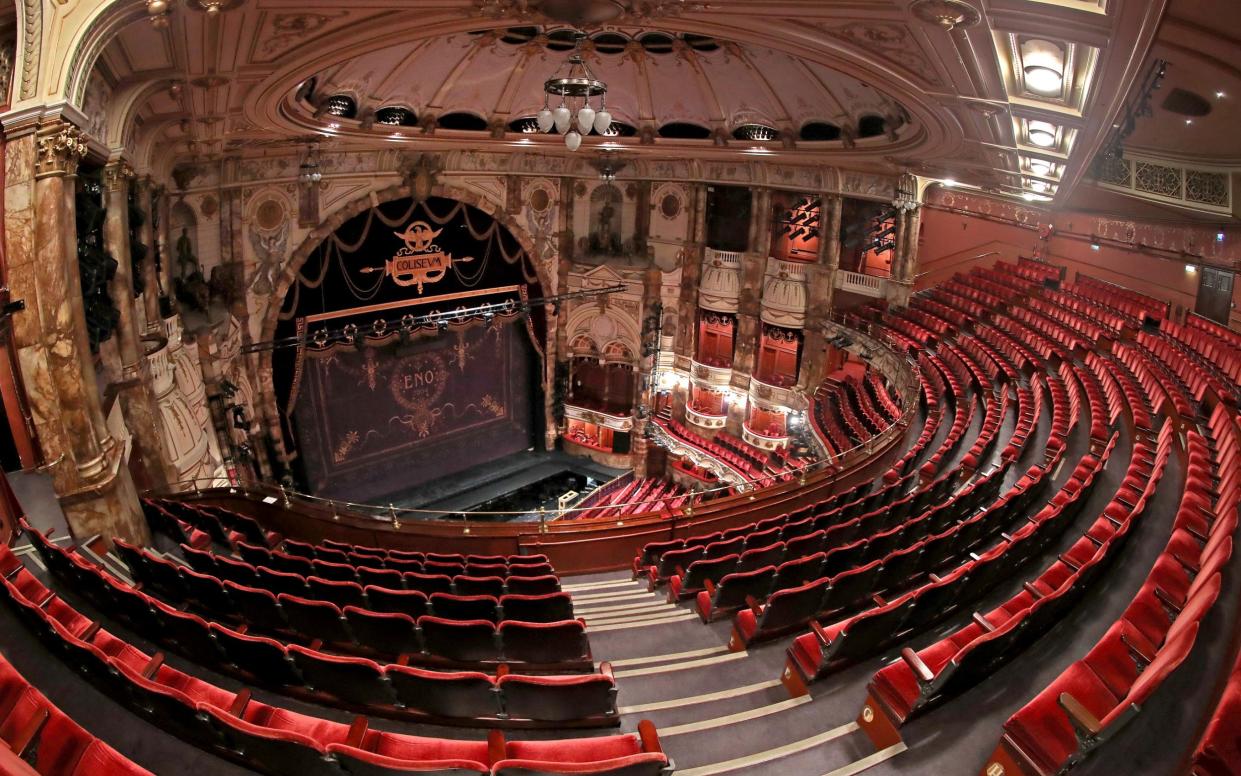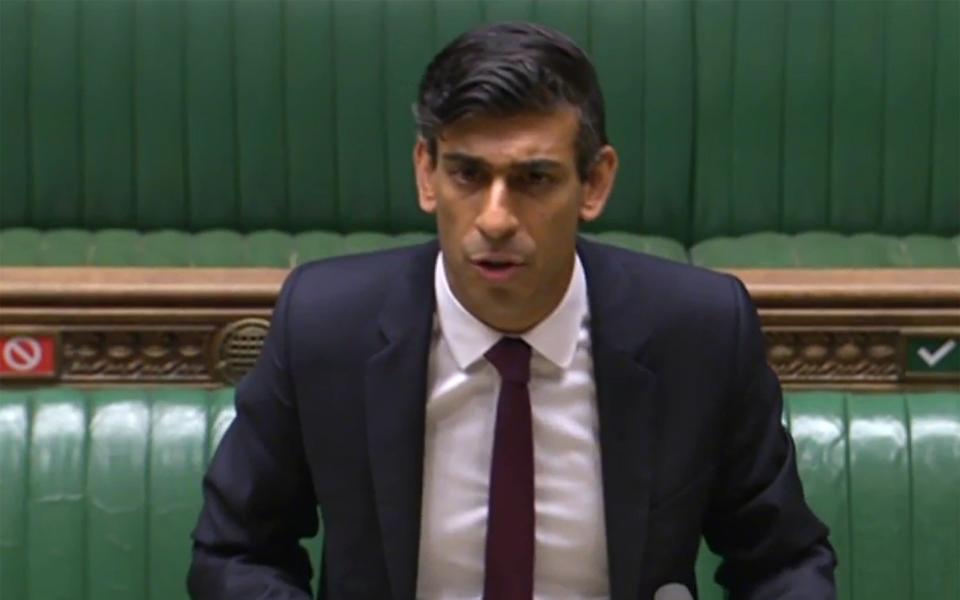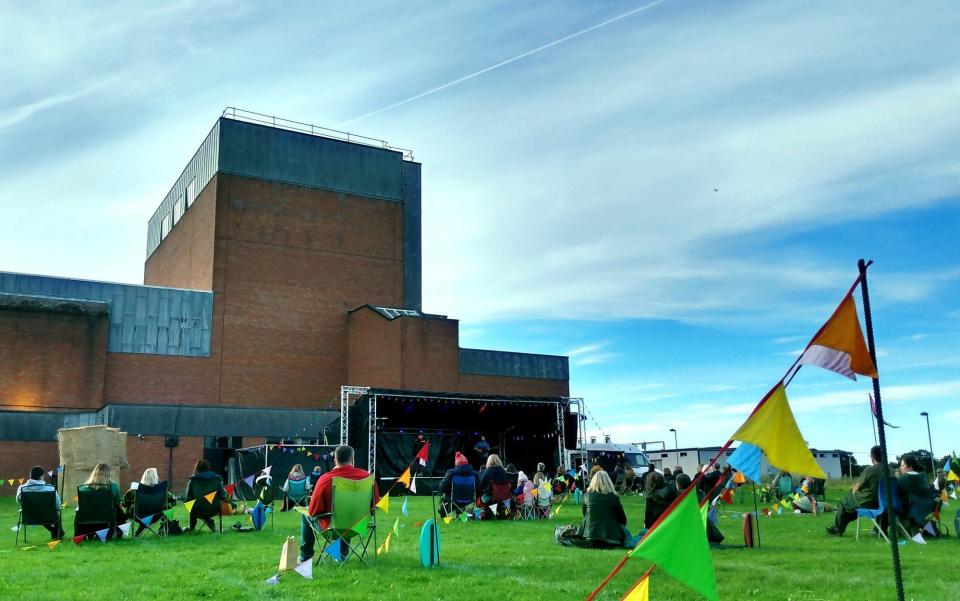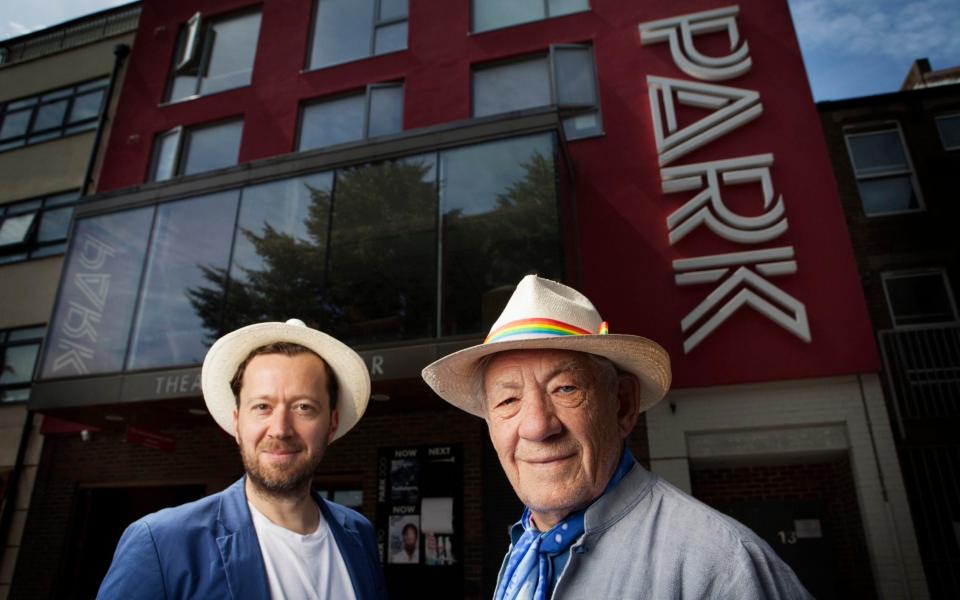UK arts leaders in despair: ‘By the time we’re allowed to reopen, we may be too decimated to do so’

Just weeks ago, Oliver Dowden announced Operation Sleeping Beauty – the panto-styled aim to get our beleaguered cultural venues refilling by Christmas. But, following the Prime Minister’s unveiling of strict new Covid-19 guidelines, it now looks like the sector will be left slumbering for at least another six months – and Rishi Sunak’s winter economic aid, announced today, has failed to give it a wake-up call.
The Chancellor singled out hospitality and tourism as two sectors particularly affected by the pandemic, but other than an extension of the VAT cut – which Dowden tweeted as “more evidence that the Government is on your side” – there was nothing to help the arts.
That seems patently unfair: this once-booming sector is only in trouble because of Government-mandated rules. As Julian Bird, chief executive of the Society of London Theatre and UK Theatre, says: “Most other sectors have been back in some form of activity for some time. We have very minor activity in the arts – probably less than 1 per cent of what we normally do.
“The sector is basically still shut, and it looks like it’ll remain like this until next spring. This is a sector that is hugely generative of tax normally, and boosts the UK’s reputation around the world.”
In the Commons today, when Stephen Farry MP asked Sunak about help for businesses that could not pay a third of salaries, and so would not receive additional support from the Government – one of the Chancellor’s winter measures – Sunak replied that the creative industries had already been given a £1.57 billion rescue package, and that support would now be “focused on those who can provide viable jobs with a genuinely secure future for their employees”. It’s an extraordinary dismissal for a massively successful sector that is crippled by unforeseen Covid restrictions – none of their own making.
The Chancellor’s plans also leave many individual arts workers – who are neither employed full-time by a venue, nor qualify for the self-employment scheme – falling through the cracks yet again. But, when challenged on the point, Sunak simply said the eligibility would “remain the same, with some refinements”.
Likewise, the new 10pm curfew announced earlier this week doesn’t apply to arts venues directly, but it’s not exactly confidence-boosting. “It’s knocked us all for six,” admits Tamara Harvey, artistic director of Theatr Clwyd in Wales. “We’re eternal optimists – a bad dress rehearsal means a good performance, the show must go on – but it’s really frustrating.”

Theatr Clwyd diligently programmed outdoor shows post-lockdown, with Covid safety measures all adhered to, and is in talks with the Welsh government about being a test venue for the return of indoor performances – with an entire autumn season planned – “but we’ve not had the go-ahead. We’re allowed to use our Anthony Hopkins Theatre as a cinema, but not as a theatre!”
Bird thinks it’s “sobering that there are these other restrictions for six months. We all need to assess what that means for theatres. The return of major productions and major tours is clearly not imminent.”
Based on this week’s announcements, the Government assessment seems to be that theatres are safe with social distancing in place. “That is what we’ve worked hard on,” Bird says. “There is no evidence at the moment that Covid is spreading from events. The sector is taking its responsibility very seriously.”
But socially distanced shows have to be “a short term, hopefully very short term” measure, he stresses. Producer Nica Burns has already been “very honest about only being able to do small-scale shows in her West End theatres” under these conditions.
Bird adds that work continues with DCMS to reach the fabled Stage 5 – venues with full audiences – and the importance of the November date (Dowden’s suggestion that the Government could announce a Stage 5 return then) is clear, since “it offers four months’ lead time to March next year, so productions can plan reopening. The implications of not having enough lead time are dramatic for our sector.”

At least the new restrictions haven’t reversed theatre’s hard-fought progress, points out Alistair Spalding, artistic director and chief executive of Sadler’s Wells. “My first reaction on hearing Boris Johnson’s speech was relief, because we’re still allowed socially distanced performances. We’ve got Birmingham Royal Ballet’s Lazuli Sky in October – which sold out on the first day of sales – and others planned.”
Sadler’s Wells had already cancelled its Christmas season, as it wasn’t viable with 30% socially distanced capacity. Spalding recognises that the virus is “going in the wrong direction”, but it’s a tough wait for venues that need to open fully, which now “looks further out than we thought. Six months of this is a depressing prospect. Winter is going to be difficult.”
Jez Bond, founder and artistic director of north London’s Park Theatre, wasn’t surprised by the government update, “because a second wave was always coming. If we tried to open and then had to close again, that would have dire consequences. But the constant confusion of messages is unhelpful – for audiences as well as the industry. Now people are wondering: ‘Are we allowed to go to the theatre? Is it non-essential travel? Do we feel comfortable?’”
The Park isn’t Arts Council-funded, so needs to raise “about £300,000 a year just to break even”. At the moment it’s staying afloat thanks to the generosity of supporters like Sir Ian McKellen. The government has supplied a £500 million insurance scheme to the film and TV industry, observes Harvey, so why not do the same for our world-leading theatre? Otherwise, the risks for mounting productions which are then scrapped because of changing lockdown rules “are simply too high”. Bird says that discussions with the government are indeed ongoing.

Theatr Clwyd has hopes for a socially distanced pantomime, but, like many, is still waiting to hear whether it will get funding from the £1.57 billion arts rescue package. Crucially, this week’s government announcement adds to the sector’s state of uncertainty. Bond compares it to Schrödinger’s cat: “We’ve asked for £250,000 for the rescue package. We’re eager to reopen with full audiences. A replacement for the furlough scheme is vital, otherwise there’ll be significant unemployment. And we hope audiences will want to come back.
“If all of those go in our favour, we won’t be too wounded. If not, we’re facing imminent liquidation. So the cat is alive and dead and all states in between.”
Paul Miller, artistic director of Richmond’s Orange Tree Theatre, was “sceptical of ‘moonshots’ and Sleeping Beauty”. He notes that the DCMS asks organisations to outline in their rescue fund application any plans to operate “with social distancing, until March 2021 – not getting full audiences by Christmas. I’m surprised there hasn’t been more comment about that.”
Theatre “is a business,” states Miller. “It needs to plan and it needs certainty. People seem to have a 17th-century idea of a load of actors with a dressing-up box ready to go at a moment’s notice.” But if arts workers are now forced to leave the industry, “it’s a massive waste of years of investment – not just in buildings, but in people. All that skill, experience and artistry lost.
“Usually, we spend over £500,000 a year employing freelancers, and hundreds of thousands paying suppliers. One small theatre being shut means that’s all been chucked out of the economy. Plus people come here for a show, and also have a drink or a meal, or go shopping, so it sucks the life out of the local high street.”
Already, we’ve seen significant job losses, with the Lyric Hammersmith the latest venue to announce redundancy consultation. “Pressing pause for too long is devastating,” says Harvey. “There’s a very real possibility that by the time we’re allowed to reopen, the industry is too decimated to do so.”
And what happens in 2021? “The culture recovery fund assumes we’re back and up and running with full capacity in April – so we need to be selling seats in advance, planning, rehearsing. There has to be build-up,” explains Spalding.
“The good thing is that audiences want to come back. We all appreciate the current health risks, but we also need to feed our souls.”


